Blog
-
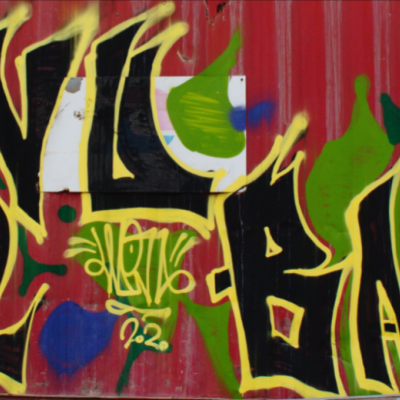 Blog
BlogIn Conversation with Haudenosaunee Land Defenders: 1492 Land Back Lane
A housing developer began construction without the consent of Six Nations on a part of their territories of the Haldimand Track, space formerly known as ‘McKenzie Meadows.’ On July 19th, 2020, land defenders from Six Nations stopped this development, reclaimed their territory, and named it 1492 Land Back Lane. This land space, and Kanonstaton (the site of dispute in 2006) are still part of 28 unresolved land claims made by the Six Nations. Despite federal, provincial and municipal governments’ (of the Canadian settler-colonial state) knowledge of the unresolved status of this land, Canadian developers continue to be allowed to purchase and construct on them.
Two injunctions have been issued to stop peaceful reclamation efforts by land defenders. On August 5th, 2020, the Ontario Provincial Police (OPP) violently invaded and enforced the first injunction, arrested 9 land defenders, and shot rubber bullets. In response, land defenders and Six Nations community members blocked roads, and parts of railways and highways around the reservation and Caledonia. A second court injunction order was issued to illegalize all peaceful protests by land defenders across Halidman county.
The following interview was conducted at the 1492 Land Back Lane, Six Nations, with Haudenosaunee community members and land defenders Myka and Dex Whitlow.
-
 Blog
BlogPolitics in the Time of Covid-19
Much of what follows is about Covid-19 as “the” pandemic. But our interest far transcends it. At issue is the nature of the crisis the Neo-liberal Capitalist Democratic States (hereinafter referred to as States) confront. A meaningful determination of the matter prompts us to dig into and find out the reasons for their complete collapse, and carelessness, on one hand, and, with it comes, on the other, their unconditional surrender before umpteen numbers of free-flowing Biblical phrases – ‘apocalyptic’, ‘time of darkness’, ‘sowing and reaping wrath’, and so forth – as if, uttering them would conjure up the much need ‘revealed miracle’ that one Pied Piper of Hamelin did in Saxony.
-
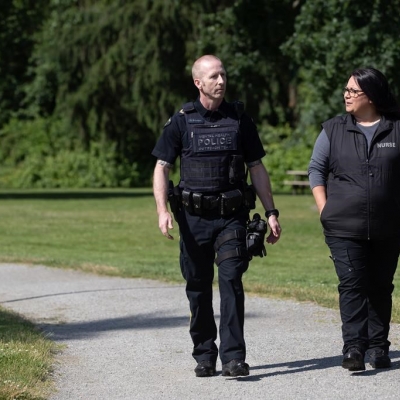 Blog
BlogMental Health Professionals are not the Solution to Racist Police Violence
The recent uprising in response to the police murder of George Floyd has sparked widespread condemnation of anti-Black police violence and growing acceptance of radical alternatives to the police. On June 23 2020, the Centre for Addictions and Mental Health (CAMH) joined the chorus of condemnations after the murder of Ejaz Choudry by Peel Regional Police during a wellness check. In a statement, CAMH argued, “Police should not be the first responders [...] people in crisis [should be] first met by mental health responders”.
But this suggestion—to replace the figure of the police with that of the mental health worker, requires closer scrutiny. Missing in this analysis is recognition that the mental health field has an ongoing history as a major perpetrator of racial and colonial violence alongside the police.
-
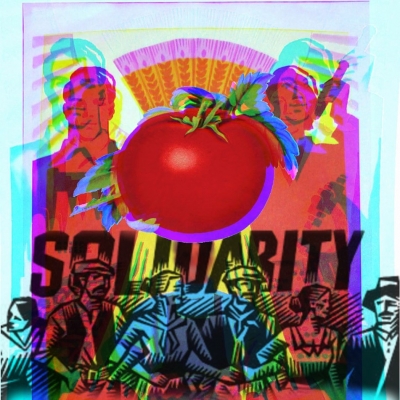 Blog
BlogFood as a Lens for Necessary Change - A Perspective from Nova Scotia
Food occupies a special place in our lives and has taken on an even greater significance during the COVID-19 pandemic. In fact, focusing on food in the context of COVID-19 provides valuable insights into how to build a more equitable and sustainable society. A recent article framed the current social and economic slowdown as an unprecedented opportunity to rethink the regular rhythms and order of society, referring to this slowdown as the Great Pause. The current moment certainly calls for critical reflection, but characterizing this period as a pause omits important lessons. We stand to learn a great deal more from the activity and movement that continues amidst the pandemic: from the seasonal approach of the growing season, to essential workers arriving to work, to the natural metabolic cycles of hunger and energy. Focusing on the activity and relationships that emerge from our daily need for food reveals important lessons on how to create a more sustainable and just normal.
-
Blog
Seeking Refuge Is an Essential Travel: Advocating for the Reopening of Roxham Road
I was still in Tijuana, situated on the US-Mexico border, when the pandemic was declared. I was working in a legal aid clinic for migrants seeking asylum in the United States. The global situation was getting worse every day and I finally had to return to Quebec.
I was able to leave Tijuana, a place that represents immobility and confinement for so many others with whom I shared my days.
As I felt the weight of this contrast on the plane, I felt the border I was leaving behind––the one that blocks the “South” from the “North”––extend itself beneath me.
It is impossible to claim asylum in Canada without touching its soil. And to fly to Canada, you need money, and more importantly, you need a visitor’s permit, which is very difficult to get for most people seeking refuge.
-
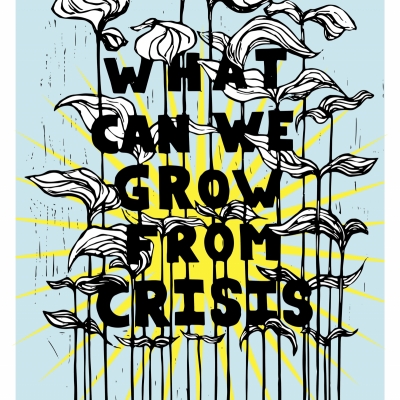 Blog
BlogThe Virus is a Relation
COVID-19 is a virus; it’s also a relationship. Whether people live or die when they get sick depends on webs of social relations, the history of oppression carried in their bodies, what care is made available for them to receive, and so much that we don’t yet understand. One way for us to understand the pandemic is to look at what activities, what practices, it sparks. How might we think about this novel coronavirus as a relationship? If we do this, we can make ethical, political, and ecological evaluations of the relationships we proliferate in response to “the virus.”
-
 Blog
BlogPharmacare and the Future of Healing
As Parliament closed this month to prepare for the surge of the Covid-19 pandemic in Canada, it unanimously passed a bill tabled by the NDP calling for the implementation of universal pharmacare by 2022. The move follows the release in June 2019 of the Advisory Council on the Implementation of National Pharmacare’s report, commissioned by the Trudeau government, with sixty recommendations detailing a clear plan for drug insurance across Canada, including a timeline calling for implementation starting in 2022 with a transition plan in place as soon as this year. According to the general consensus emerging out of its detailed study, the Council envisaged universal, publicly-funded coverage for medications, with the federal government as a key partner in financing the programme. The Council’s proposal, bold for our times in that it would see the biggest expansion of state-funded welfare in a generation, has spooked governments, who are already shuffling backwards, hedging their bets. The Canadian Medical Association, the Canadian Federation of Nurses Unions, and the Canadian Labour Congress have however already endorsed the plan.
-
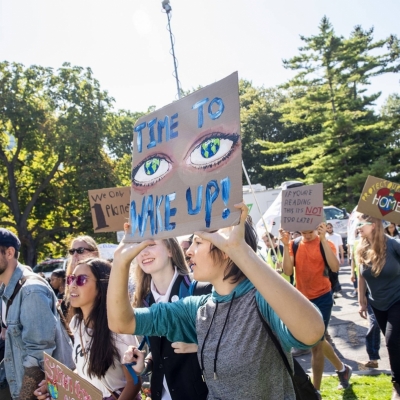 Blog
BlogMental Health and Climate Activism: it’s a double-edged sword, but it doesn’t need to be
We know a topic has hit the big leagues when Teen Vogue writes a story about it. The latest from this remarkable magazine is a story about the mental health benefits of climate activism.
-
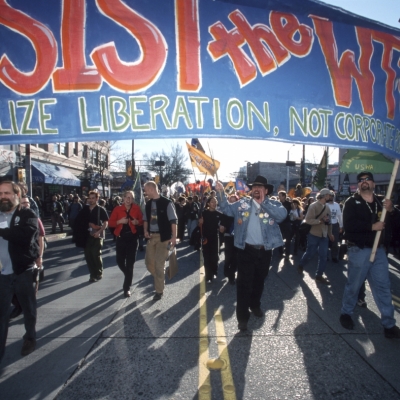 Blog
BlogRemembering for the Future: Learning from the 1999 Seattle Shutdown
On Tuesday, November 30, 1999, I was standing in downtown Seattle on 6th Avenue between Pike and Union – an unremarkable place amidst remarkable circumstances. Directly in front of me stood a reinforced line of police officers in full body armor, carrying truncheons, rubber bullet guns, and grenade launchers.
-
 Blog
BlogHonouring Dave Vasey on his birthday
Dave founded Rising Tide Toronto at the end of 2012, as a reincarnation of a previous group he had organized with - Environmental Justice Toronto.


